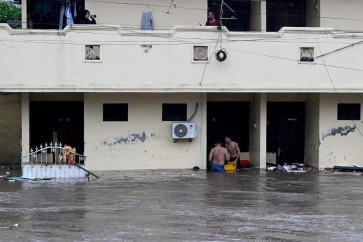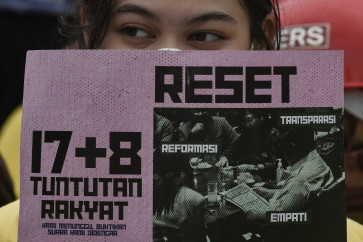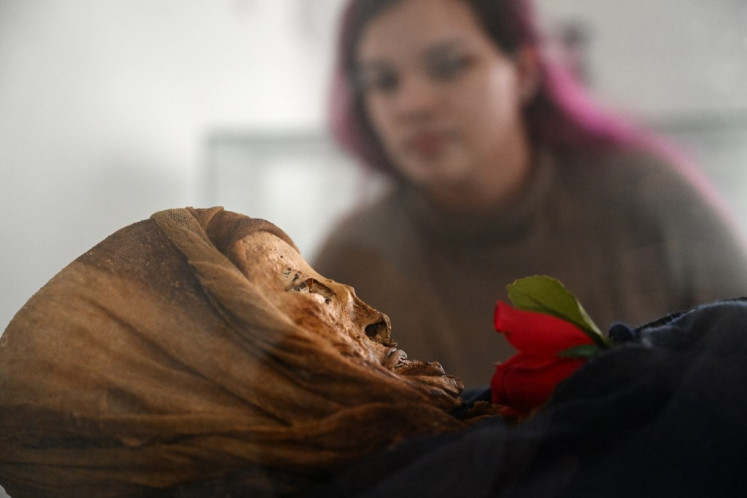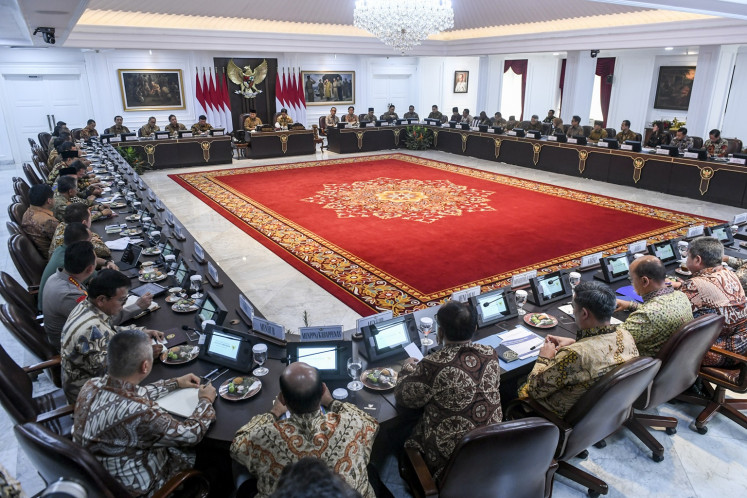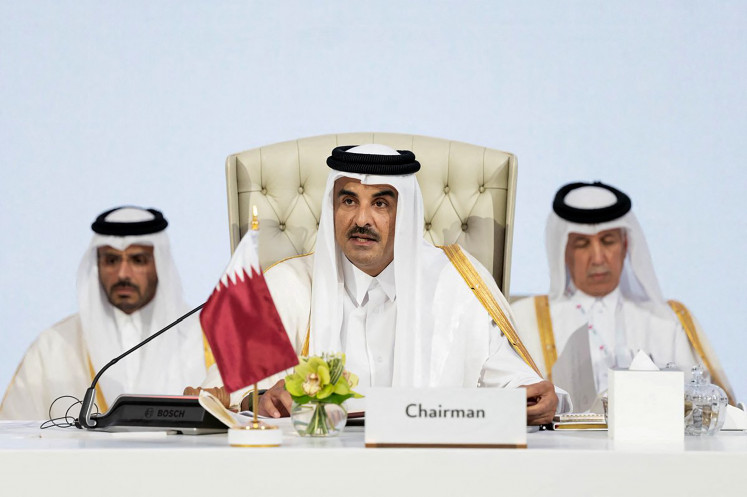Popular Reads
Top Results
Can't find what you're looking for?
View all search resultsPopular Reads
Top Results
Can't find what you're looking for?
View all search resultsOne man’s epic creative journey from architecture to filmmaking
Change text size
Gift Premium Articles
to Anyone
G
alih Mulya Nugraha had loved his job as an architect in Bandung, West Java, until four years ago when the beauty of Java streets he filmed during one memorable excursion changed his life forever. He decided to shift profession to filmmaking.
His toil has made a big splash; he has since produced an award-winning documentary for his first project titled Epic Java. His second work, Indonesia Kirana, was released this April. Recounting his creative journeys, Galih said it all began in 2012 when he could no longer bear the boring daily routines. So he decided to travel with three friends, visiting many places in Java – the island where he was born and raised.
In order to be able to review their sweet memories as frequently as they wish, they created a trailer of their journey and upload it to YouTube. Much to their surprise, many followers asked them for more and longer versions. “Many people commented on our video, asking when this ‘movie’ would finish. Then, we decided to make a longer version. Hence, for a year at our free times in 2012, we traveled around Java again,” Galih said.
Astonishingly, none of them have a filmmaking background so it thrilled them to know that many people liked their videos but they would not mind either if people criticized them.
Launched in May 2013, Epic Java, a 30-minute movie, won two awards in the same year. The first honor was for the best short documentary category from the 2013 Indonesian Film Festival (FFI). The second was from the Maya Awards, an annual Indonesian film awards initiated by Indonesian online film enthusiasts. Since those moments, Galih said, his life had changed from a full time architect to a film producer under the flagship of Embara Films. However, he did not entirely quit his old profession; he still had it as a part time architect.
(Read also: Filmmakers want more screens for local movies)
About a year later, a new movie project came from unexpected party, a university student named Dzulfiqar Abduljabbar who asked him to film the University of Padjajaran Choral Music group which was about to participate in a choir competition. Dzulfiqar only asked Galih for a video which could be uploaded in YouTube as none in his choir team had the capability to create an up-to-par video with clear pictures and sounds. “However, [Embara Films] offered us to make a movie about our journey to the choral competition which meant to promote the Indonesian culture through music,” Dzulfiqar said.
The result was Indonesia Kirana, which was released in 2016. It is a 90-minute movie about the choral music team’s whole year of hard work to qualify for an international competition in Amsterdam and win a ticket to contest in the European Grand Prix for Choral Singing Association. It is one of the highest levels of competition for a choir group to win.
Competing with teams from six European countries and a group from the US, the Indonesian choir didn’t succeed. But they had the chance to perform in three cities in Slovenia and Hungary. The video shows throughout their performances, they sang traditional songs and sported traditional costumes. They sang Yamko Rambe Yamko, a Papuan tribal song, and practiced in the streets of the two countries, gaining applause from pedestrians. On stage, they won equally good appreciations. “I hope this movie can give people insight and make them feel about our journey,” Dzulfiqar said.
Galih described the project as a great challenge particularly because it was Embara’s first movie which had involved human emotions. It took them two years to complete it, from 2014 to 2016. Galih said his team followed the agenda of the choir team wherever they went to make them familiar with camera and also the crew. The entire video duration was 90 hours and the team had to edit it to only approximately an hour.
“I see their high spirit to present the Indonesian culture. Although I am not one of the actors, I feel proud. I hope people feel the same when they watch this movie,” Galih said. (wnd)




